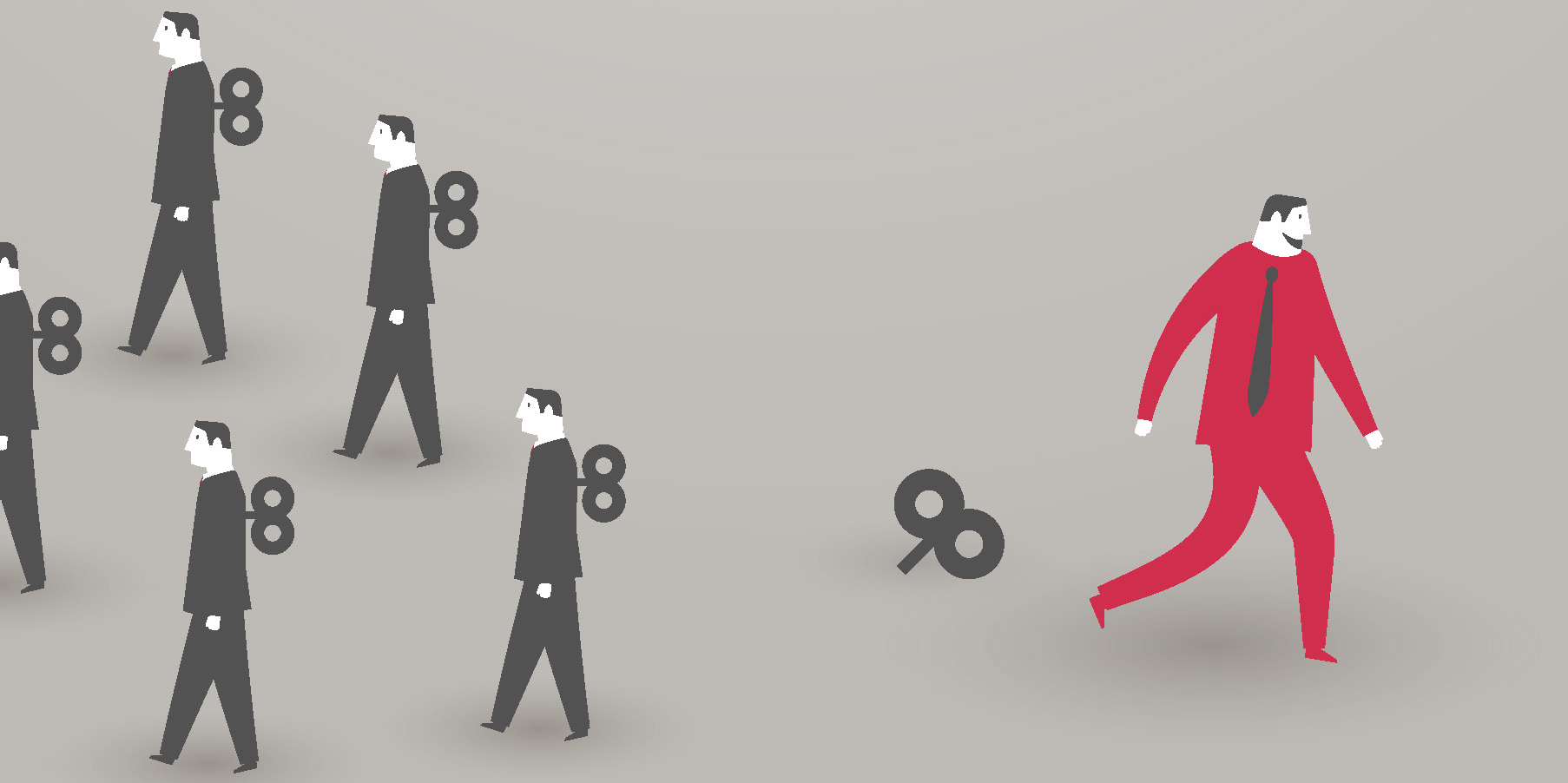
Ever wonder why there are so few real leaders and never any shortage of followers? It’s simple biology. Humans are by nature herd animals. We may call our herds communities and towns but they’re still herds, just the same. And herds, by nature, have few leaders.
This is not rocket science, folks. Safety in numbers is an ancient survival instinct. When we’re around others like us, our brains reinforce that behavior by rewarding us with powerful neurotransmitters like Serotonin and Dopamine that make us feel good. That’s why we evolved as social creatures.
But technology has made a real mess of things. Social media and messaging fool the limbic system – the part of the brain responsible for survival and response to emotional stimuli – into rewarding us whenever we connect with others online. That’s why we feel that tug to text and tweet. It’s literally addictive.
If you took Psych 101 in college you learned about a famous behavioral conditioning experiment called the Skinner box. B. F. Skinner trained lab rats to press a lever and get a food pellet as reward whenever a light came on. The rats would eventually get really good at it. They were programmed … just like when you’re on Facebook. No kidding.
I got to thinking about this during a recent trip to California wine country. Around noon hundreds of people always line up to get a sandwich or salad at this one place on Dry Creek Road in Sonoma Valley. They wait on long lines to order and pay. Then there’s no place to sit. Sure, it’s good food, but not that good.
Meanwhile there are dozens of great places to eat less than five minutes away in the quaint and lovely town of Healdsburg. No lines, no wait, and every kind of food and atmosphere you can think of. Do the masses go there? Nope. Just savvy locals.
In case you’ve never noticed, rush hour traffic patterns are exactly the same. People will just sit and stew in stop-and-go, bumper-to-bumper traffic on crowded highways instead of taking surface streets and saving themselves all sorts of time and stress.
All this because we’re programmed to behave like lemmings. It makes us feel good. It makes no difference if there are tons of metal and wheels separating us or we’re packed into tiny little buildings like mice in a cage. We can even be talking, texting or tweeting with friends who are continents away. It’s all the same to the limbic system.
The same mechanism is also responsible for cultural norms. Those who support the majority viewpoint are lauded by others, so that behavior is reinforced by our brains. Those with dissenting views clam up for fear of being ostracized from the community or isolated from the herd – a dangerous thing back when the limbic system evolved.
That phenomenon is called the spiral of silence, but it’s really the same biochemical reactions in the brain that cause cultural conformity. It takes enormous personal courage, strength and discipline to override the warnings your brain puts out, break from the status quo and risk being perceived as unpopular.
And that pressure to conform is enhanced online. A study conducted by Pew Research and Rutgers University concluded that the spiral of silence effect is actually far worse on Facebook and Twitter than in face-to-face public forums. The same is true among users of those social networks even when they’re not online.
So, contrary to popular wisdom, social media, blogs, personal brands and online personas only give the illusion of uniqueness and differentiation. In reality, those activities increase conformity, stifle diversity and keep you marching to the same drumbeat as everyone else.
Herd animals, indistinguishable lemmings, behaviorally conditioned lab rats, spiral of silence – distasteful as those words and phrases may be, they describe the vast majority of human behavior. The brain’s limbic system may have evolved millions of years ago, but it plays an increasingly active role in today’s 24×7 connected culture.
Back to the original question, leaders are rare individuals capable of overcoming the powerful programming of their limbic system. Like rare genetic mutations, they shatter the status quo and come up with new and better ways of doing things. They alone carve new paths for the masses to follow. They alone advance civilization. They alone make the world a better place.
Originally appearing on entrepreneur.com, this article was the genesis of my first book, “Real Leaders Don’t Follow.” Learn more.